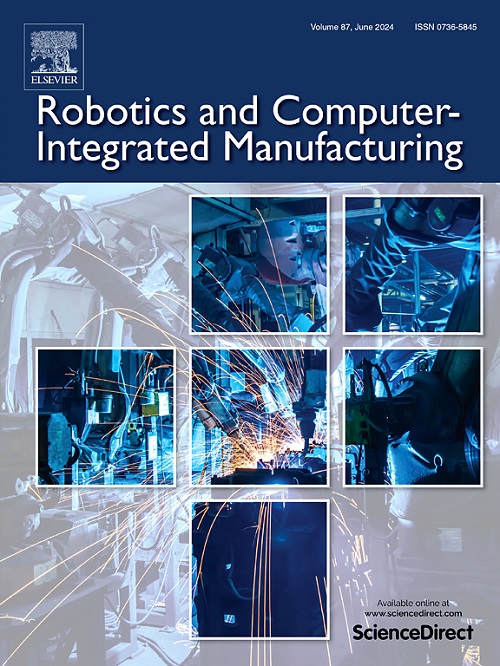面向可持续制造的人类感知调度:工业5.0时代动态作业车间调度研究综述
IF 11.4
1区 计算机科学
Q1 COMPUTER SCIENCE, INTERDISCIPLINARY APPLICATIONS
引用次数: 0
摘要
在工业5.0的背景下,作业调度必须超越传统的以效率为中心的方法,结合适应性、可持续性和以人为中心的方法。尽管物联网、数字孪生和传感器等工业4.0技术已经实现了实时和动态自适应调度,但目前大多数系统仍然依赖于静态模型,缺乏对动态调度环境和人为因素的综合考虑。为了在实际应用中实现工业5.0的愿景,越来越需要统一这些维度的动态调度方法。鉴于这一领域的研究有限,本研究提出了一个可持续动态作业调度的综合研究框架,并以结构化的概念模型为支持,该模型明确概述了动态因素、环境因素和人为因素如何系统地纳入作业调度问题。对文献进行了系统的回顾,以评估最近的进展并确定未开发的领域。由此产生的框架旨在为未来的研究提供一个清晰和结构化的基础,旨在开发符合工业5.0需求的智能、自适应、生态友好和人类感知的调度系统。本文章由计算机程序翻译,如有差异,请以英文原文为准。
Human-aware scheduling for sustainable manufacturing: A review of dynamic job shop scheduling in the era of Industry 5.0
In the context of Industry 5.0, job scheduling must evolve beyond traditional efficiency-focused approaches to incorporate adaptability, sustainability, and human-centric approaches. Although Industry 4.0 technologies such as IoT, digital twins, and sensors have enabled real-time and dynamic-adaptive scheduling, most current systems still rely on static models and lack integrated consideration of environmental and human factors within dynamic scheduling contexts. To realize the vision of Industry 5.0 in practical applications, there is a growing need for dynamic scheduling methods that unify these dimensions. Given the limited research in this area, the present study proposes a comprehensive research framework for sustainable dynamic job scheduling, supported by structured conceptual models that explicitly outline how dynamic factors, environmental aspects, and human factors can be systematically incorporated into job scheduling problems. A systematic review of the literature is also conducted to assess recent progress and identify underexplored areas. The resulting framework is intended to provide a clear and structured foundation for future research aimed at developing intelligent, adaptive, eco-friendly, and human-aware scheduling systems aligned with the demands of Industry 5.0.
求助全文
通过发布文献求助,成功后即可免费获取论文全文。
去求助
来源期刊
CiteScore
24.10
自引率
13.50%
发文量
160
审稿时长
50 days
期刊介绍:
The journal, Robotics and Computer-Integrated Manufacturing, focuses on sharing research applications that contribute to the development of new or enhanced robotics, manufacturing technologies, and innovative manufacturing strategies that are relevant to industry. Papers that combine theory and experimental validation are preferred, while review papers on current robotics and manufacturing issues are also considered. However, papers on traditional machining processes, modeling and simulation, supply chain management, and resource optimization are generally not within the scope of the journal, as there are more appropriate journals for these topics. Similarly, papers that are overly theoretical or mathematical will be directed to other suitable journals. The journal welcomes original papers in areas such as industrial robotics, human-robot collaboration in manufacturing, cloud-based manufacturing, cyber-physical production systems, big data analytics in manufacturing, smart mechatronics, machine learning, adaptive and sustainable manufacturing, and other fields involving unique manufacturing technologies.

 求助内容:
求助内容: 应助结果提醒方式:
应助结果提醒方式:


